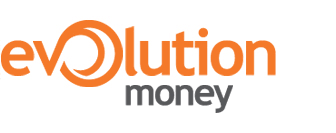Our Lenders
We work with trusted brokers to give you access to a panel of leading lenders well placed to meet your needs at the lowest rates.










Getting a mortgage with bad credit can be tricky, but it is not impossible. Whether you are a first-time buyer with a poor credit record, or you have previously had your home repossessed, this guide explains how to apply for a mortgage with bad credit.
Can You Get a Mortgage With Bad Credit?
Yes, but it is much harder to get a mortgage if you have bad credit, and it can lead you with poor deals. Each lender has their own criteria for what they consider to be a bad credit score.
Some lenders consider a bad credit score to be one missed bill payment, whereas another could consider bad credit to be nothing below a home repossession. The majority stand somewhere in between the two.
Generally, if you have declared bankruptcy or had a county court judgement within the last six years, this will make it harder to find a lender. There may still be lenders willing to give you a mortgage, but you are unlikely to have as many choices as borrowers with better credit scores. You will also have to pay a higher interest rate and fees.
You may also be asked to provide extra evidence that you can afford your mortgage, if you have experienced problems with repayments in the past.
Partnered with
What Issues Can Impact My Credit?
There are a number of issues that can negatively impact your credit score. These include:
- Late or missed payments on bills
- Repossessions
- Defaulted credit cards
- Bankruptcy
- Late or missed payments on loans
- Mortgage arrears
- County court judgements within the last six years
How Can I Improve My Chances of Getting a Mortgage With Bad Credit?
Manage Your Outgoings
Your lender will check your outgoings when you apply for a mortgage. This is to check whether you will still be able to afford your mortgage if house prices change, or if you lose your job. Months before you apply for your mortgage, start thinking about your outgoings.
Check Your Credit Record
You can use a free service such as Experian to check your credit score, missed payments, or any potential CCJs. The credit score you will be shown is an approximation, as your lender will score you based on their own criteria.
Once you have an idea about your credit record, you can work on fixing your score. Start doing this months or years before your mortgage application. Make all your repayments on time, or consider using a credit builder credit card.
Build a Big Deposit
It can be easier to get a mortgage with a larger deposit. If you have bad credit history, you will have a better chance of getting approved for a mortgage.
Having a deposit of around 20-30% (as opposed to 5-10%) will give you a lower loan-to-value (LTV). This makes it easier for you to get accepted.
Get a Guarantor
A guarantor is someone who agrees to pay your rent if you cannot pay for it. Sometimes, if you have poor credit, you will be asked to name a guarantor.
A friend or family member might be willing to be named as a guarantor, but you should both consider the implications before committing to this. A guarantor will have a charge placed against their own home, making if you both cannot pay, they could have their home repossessed. Any missed payments will also affect both of your credit ratings.
What Do I Need for a Mortgage Application?
You may be asked for additional evidence if you apply for a mortgage with a poor credit score, but these are the basic things you need for your mortgage application:
- Evidence of income, including your partner’s income if you are applying together
- Deposit amount
- Details of your outgoings
- Credit history
Should I Apply for a Mortgage With Bad Credit?
It is best to wait for your credit score to improve before you apply for a mortgage. If you spend some months to years ensuring you make all your payments on time, you will have a better chance of getting approved.
If you would rather apply immediately, it can come with problems. You will likely need a bigger deposit, and you will accrue higher interest rates. You also have a higher chance of getting rejected.
However, if you are successful in applying for a mortgage with bad credit, you will be able to move into your new home faster, and you will avoid future house price rises.
What’s the Lowest Credit Score You Can Successfully Apply for a Mortgage With?
All lenders use their own system for generating credit scores, so there is no one credit score that can be defined as the bottom limit. The lender will look at your credit record and apply their own score.
Can I Get a Mortgage if I Have Been Made Bankrupt?
You will most likely have to wait for your bankruptcy to be removed from your credit history, which will be about six years after the date of your bankruptcy.
Can I Remortgage With Bad Credit?
If your credit problems are minor, then you can often remortgage. These minor problems are small infractions such as single late payments. However, any bad credit could mean you will not be eligible for the best deals, and will incur higher interest rates and fees.
Can I Get a Mortgage if My House Was Repossessed?
Yes, but it is very difficult and your chances might be extremely low. You will have to build your credit score, perhaps for years, and do some research into lenders who will overlook past repossessions.
Partnered with